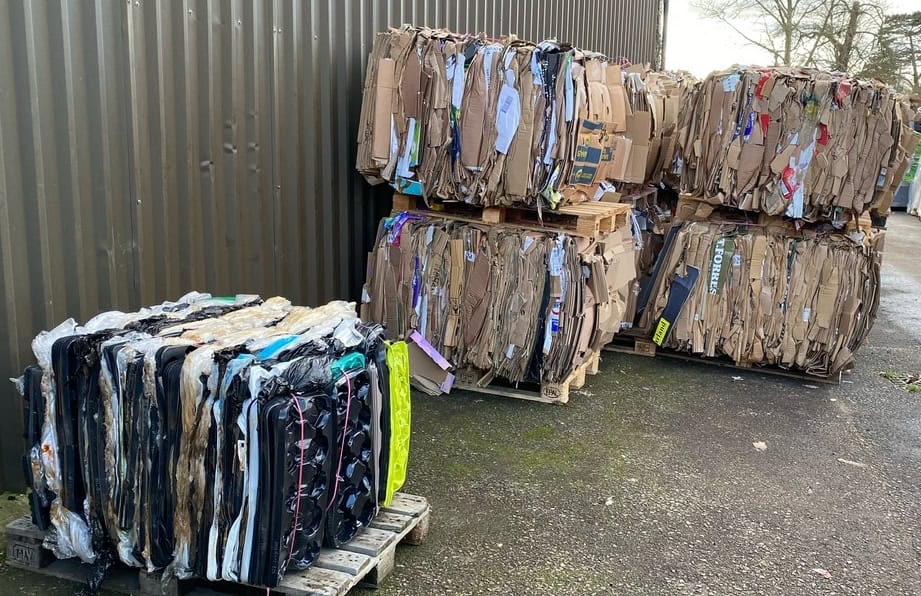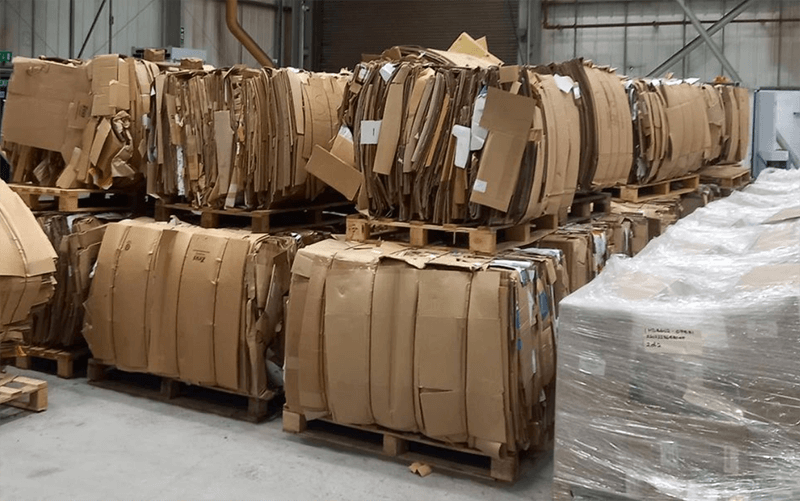Clothing Made With Recycled Materials
Over £340 billion worth of textile material is thrown away each year globally. As fast fashion becomes further reaching and even more accessible, there is no doubt this number will continue to rise. The growing attitude of purchasing the latest trends, combined with the speed that these items can be obtained, makes the global apparel retail market worth over £1.5 trillion. Common Objective contextualises this, explaining that this amount of money equals the combined gross domestic product (GDP) of the 126 poorest countries in the world.
Our “throwaway society” has contributed hugely to the diminishing sustainability of the fashion industry. Individuals are quick to purchase new items when those they possess are slightly damaged or out of fashion.
This has been supported by the increasing speed of fast fashion. Items that half a century ago would have taken a month to produce, now can be made in a day.
As the speeds have increased, the prices have reduced. Businesses increasingly outsource to developing nations. This way, companies can reduce the prices of their items, without reducing profit. They, instead, reduce wages of garment workers and material expenditure.
The reduction of material expenditure and the reduction of prices reinforces our Throwaway Society rhetoric, exposing how these big fashion names essentially design their produce to be disposable.
Environmental Impact
Fast fashion has caused the fashion industry to become one of the biggest emitters of greenhouse gases and waste producers.
Mass production has a huge impact on emissions, water consumption, and pollution.
Emissions
The production of clothing and textiles produces a huge amount of emissions, particularly synthetic textiles. In 2015, this industry produced more emissions than international flights and maritime shipping combined. This number keeps increasing.
As more companies outsource around the globe, emission rates in the industry continue to increase. Large fossil-fueled factories power mass-production, and then ship the products back on huge shipping containers in planes and boats.
Water Use
Natural fabrics, such as cotton and wool, while having a low carbon footprint, are hugely water-intensive. One cotton coat can consume more than 10,000 litres of water, and denim jackets even more so. The monopoly that textile production has in certain countries runs the risk of draining water supply to the general population and agriculture.
Pollution
Synthetic materials, such as nylon, polyester, and spandex, are central in the production of cheap clothing. It takes 342 million barrels of crude oil per year to produce synthetic materials. This oil is rarely sustainably treated and disposed of, and as a result, easily leaks into waterways and the surrounding environment, or burns into the atmosphere (carbon emissions).
Pollution also occurs via the chemicals used in dying. Many of the outsourced dying factories are located in countries with weak regulations regarding hazardous waste. The result is that much of the chemical waste contaminates local water sources, damaging local human and animal livelihood.
How Can We Combat This?
Combatting this issue requires more complexity than just “don’t buy fast fashion.” Shaming or guilting people when buying fast fashion is counter-productive. Particularly for low-income households, spending more money on sustainable clothing isn’t often feasible.
However, there are some ways that we as a society can collectively reduce the amount of customer investment into the fast fashion industry.
The model should be an equal ratio: Change Our Behaviour : Change The Industry. One cannot work without the other.
The Best Three Ways To Change Behaviour Is:
- Buy Quality – buy clothing that will last. This doesn’t need to be designer, but brands that don’t fall into the fast fashion category, so that you are more likely to keep that item for longer.
- Buy Used clothes – whether this be online through sites like Ebay and Depop, or in charity shop, this helps reduce emissions and water use that would be used if you bought that item new. A Northamptonshire based company, Baileys Skip Hire and Recycling launched a clothing recycling campaign to support their local Air Ambulance service. There are many other recycling programmes available which can help the impact of the fashion industry.
- Buy from sustainable clothing manufacturers – as people begin to acknowledge the impacts of fast fashion, sustainable clothing companies have been gaining attention in the fashion world.
Examples Of Sustainable Clothing Manufacturers:
- Zero Waste Daniel – takes scrap material and makes one-of-a-kind patchwork clothing.
- RubyMoon – creates activewear from used fishing nets and plastic bottles from the ocean.
- Fanfare – reinforces the importance of slow fashion. They create one collection per year, promoting the importance of prolonging the life of an item of clothing, tackling our throwaway society head on.
Moving away from fast fashion and towards recycled fashion brands is one way that we can help combat the detrimental impact the retail industry is having on the environment. Not only will this help reduce this industry’s carbon footprint and water consumption, but this shift in trend away from our throwaway society mentality will leak into other areas of industry too.








